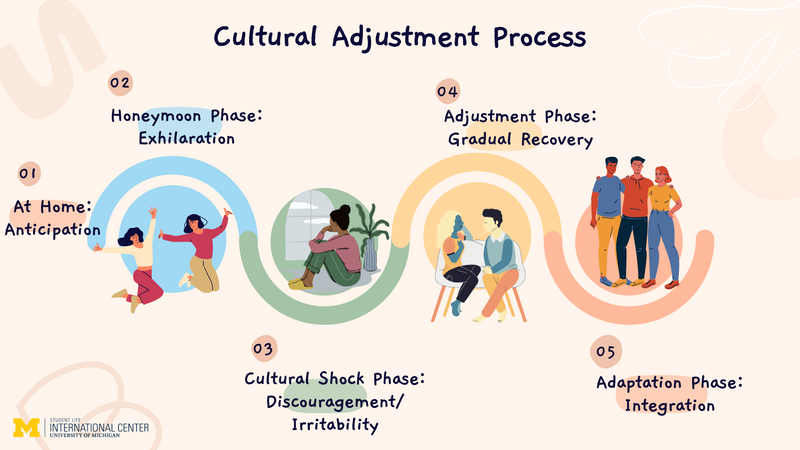So you’ve been accepted into your dream US school, or perhaps one of the schools on your list, and you’re feeling super excited, nervous, or both! But what does moving to a new city miles away from home really mean?
I was an international student from Hong Kong arriving in New York City at 18 years old. The only thing I knew about New York was the Statue of Liberty, Gossip Girl, bagels and pizza. I had no idea what it was going to take to make my American Dream come true.

After lots of trial and error, I've gathered some experience to share the 5 things I wish I knew as an international student in the US (before I got here) to make your new city feel like home.
1. Do your research about visas
"To plan is to succeed!"
The visa process is one of the most difficult factors of being an international student, especially if you have plans to work in the US after your program. You'll need to persevere through the uncertainty of visa approval, the strict deadlines to follow, the multiple steps, and possible complications along the way.
 Photo by Corinne Kutz on Unsplash
Photo by Corinne Kutz on UnsplashWhen you're first starting your program, keep in mind:
Visa length differs based on your program and job function, so consider this in your decision of program and make adjustments if needed.
Sometimes companies avoid hiring international students due to the extensive process. Research the ones you're interested in and see if they have a history of hiring international workers.
Begin familiarizing yourself with the USCIS website section for students and employment or watch the video Student Visas for International Students in USA for an overview of what is required.
Attend your school’s international student department's info sessions that explain the process and guide you through it. You'll be in contact with the department often.
2. Take a chance to share your culture with others
“Do you guys have Disney Channel?”
“How is your English so good?”
“Hong Kong is in Japan, right?”
Those were a few of the shocking questions I was consistently asked when I first arrived, I had no idea people knew so little about my home city.
 Photo by Florian Wehde on Unsplash
Photo by Florian Wehde on UnsplashThis is how I changed my mindset around it:
At first, I was slightly offended that they had an inaccurate perception of people from East Asia. However, I realized that many of them didn't have the opportunity to visit Asia or meet people born and raised there.
I used these conversations as opportunities to share more about what Hong Kong is really like — our food, the fast-paced culture, and is the international financial hub of Asia.
I grew a deeper appreciation for my home and felt proud to be a representation of it.
Quiz
What are the best ways to respond to someone making an assumption about your background or home city? Select all that apply:
3. You'll experience culture shock

Culture shock is normal and you should expect it to happen within the first 6 months of arrival at your new home. Oxford Dictionary defines it as:
...the feeling of disorientation experienced by someone who is suddenly subjected to an unfamiliar culture, way of life, or set of attitudes.
You might experience it as feeling:
out of place or not at ease
anxious
the lack of a sense of belonging
confused about your environment and peers
I came from a place where I was part of the majority racial group, to a place where I was in the minority group and experienced micro and macro-aggressions for my race. I felt confused as to why people didn’t stop for emergency vehicles, why tipping was required, why strangers liked to have small talk, or why service was so much slower.
4. Take it one step at a time
 Image courtesy of the University of Michigan's International Center. To hear an audio description of the image above, click play on the audio player below:
Image courtesy of the University of Michigan's International Center. To hear an audio description of the image above, click play on the audio player below:
If you think you might be experiencing culture shock, know that it is an adjustment process and you will go through phases. Here are some of the ways I tried to cope while going through the ups and downs of this process. Try these:
Find food that reminds you of home and making it a weekly ritual to have it. It might not be as tasty, but a meal can bring back feelings of comfort and warmth.
Exercise or do an outdoor activity that is in the neighborhood to feel more familiar with your surroundings (I loved going on walks after class!).
Join a cultural school club that is for students from your home country (or nearby).
Give yourself time and space to adjust. The more frustrated I felt about not feeling at home, the longer the feelings lingered. The place you’re at is not meant to feel exactly like home, and you need time to figure out your new comfort zone.
Embrace the newness and it will reveal a different side to you that you will learn to love and appreciate. The difficult but exciting part of this journey is to explore who you are as an individual separate from your home, and to question the values and perspectives you came with.
Adjustment takes time, and as long as you're taking one small step forward at a time, you'll be okay!
5. Invest time in the community
If one of the reasons why you chose to be an international student away from your loved ones was to learn about a new city and its culture, engaging with the community will definitely help grow your sense of belonging and make this decision feel meaningful.
 Photo by Hannah Busing on Unsplash
Photo by Hannah Busing on UnsplashYou can consider:
Volunteering at shelters or after-school programs.
Working part-time at your local coffee shop or restaurant (to learn about your community on a more personal level).
Attending concerts, performances, or interest group meet-ups.
Participating in community programs like book clubs, activism events, outreach events.
Joining a sports activity that engages a group of people like a running club, climbing gym, intramural league, or even a charity walk.
Take Action

Maybe you learned a new strategy to try out. Maybe you've tried one or a few of my suggestions already. Figuring out what works for you to feel more comfortable will take time and lots of trial and error, it is all part of the process! If you're ready to try more, you can:
Your feedback matters to us.
This Byte helped me better understand the topic.
